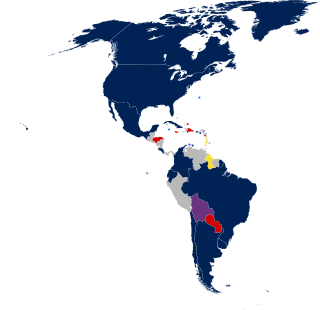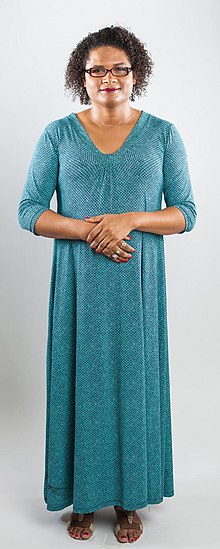
Societal attitudes toward homosexuality vary greatly across different cultures and historical periods, as do attitudes toward sexual desire, activity and relationships in general. All cultures have their own values regarding appropriate and inappropriate sexuality; some sanction same-sex love and sexuality, while others may disapprove of such activities in part. As with heterosexual behaviour, different sets of prescriptions and proscriptions may be given to individuals according to their gender, age, social status or social class.

Lesbian, gay, bisexual, and transgender (LGBT) rights in Ecuador have evolved significantly in the past decades. Both male and female forms of same-sex sexual activity are legal in Ecuador and same-sex couples can enter into civil unions and same-sex marriages.

Lesbian, gay, bisexual, and transgender (LGBT) rights in Spain rank among the highest in the world; having undergone significant advancements within recent decades. Among ancient Romans in Spain, sexual interaction between men was viewed as commonplace, but a law against homosexuality was promulgated by Christian emperors Constantius II and Constans, and Roman moral norms underwent significant changes leading up to the 4th century. Laws against sodomy were later established during the legislative period. They were first repealed from the Spanish Code in 1822, but changed again along with societal attitudes towards homosexuality during the Spanish Civil War and Francisco Franco's regime.

Lesbian, gay, bisexual, and transgender (LGBT) rights in Brazil rank among the highest in the world. Same-sex couples in Brazil have enjoyed the same rights guaranteed to heterosexual ones since 16 May 2013, including marriage and adoption. On June 13, 2019, the Brazilian Supreme Court ruled that discrimination on the basis of sexual orientation and gender identity is a crime akin to racism.

Lesbian, gay, bisexual, and transgender (LGBT) rights in Cuba have significantly varied throughout modern history. Cuba is now considered generally progressive, with vast improvements in the 21st century for such rights. Following the 2022 Cuban Family Code referendum, there is legal recognition of the right to marriage, unions between people of the same sex, same-sex adoption and non-commercial surrogacy as part of one of the most progressive Family Codes in Latin America. Until the 1990s, the LGBT community was marginalized on the basis of heteronormativity, traditional gender roles, politics and strict criteria for moralism. It was not until the 21st century that the attitudes and acceptance towards LGBT people changed to be more tolerant.

Homophobia encompasses a range of negative attitudes and feelings toward homosexuality or people who identify or are perceived as being lesbian, gay or bisexual. It has been defined as contempt, prejudice, aversion, hatred or antipathy, may be based on irrational fear and may sometimes be attributed to religious beliefs.

Lesbian, gay, bisexual, and transgender (LGBT) people in Panama face legal challenges not experienced by non-LGBT residents. Same-sex sexual activity is legal in Panama, but same-sex couples and households headed by same-sex couples are not eligible for the same legal benefits and protections available to opposite-sex married couples.

Lesbian, gay, bisexual, transgender, intersex, non-binary and otherwise queer, non-cisgender, non-heterosexual citizens of El Salvador face considerable legal and social challenges not experienced by fellow heterosexual, cisgender Salvadorans. While same-sex sexual activity between all genders is legal in the country, same-sex marriage is not recognized; thus, same-sex couples—and households headed by same-sex couples—are not eligible for the same legal benefits provided to heterosexual married couples.

Laws governing lesbian, gay, bisexual, and transgender (LGBT) rights are complex and diverse in the Americas, and acceptance of LGBT persons varies widely.

Lesbians, Gays, Transsexuals and Bisexuals Collective Organization is a Spanish non-governmental association stated as a public utility and non-profit organization in Boletín Oficial del Estado which works actively for the rights of lesbians, gays, transsexuals and bisexuals. It is located in the surroundings of Chueca quarter in Madrid.
The study of homosexuality in Mexico can be divided into three separate periods, coinciding with the three main periods of Mexican history: pre-Columbian, colonial, and post-independence, in spite of the fact that the rejection of homosexuality forms a connecting thread that crosses the three periods.

This article is intended to give an overview of the history of LGBT rights in Brazil.
Nancy Cárdenas was a Mexican actress, poet, writer and feminist.

The following outline offers an overview and guide to LGBT topics.

Beatriz Gimeno Reinoso is a Spanish politician and LGBT rights activist. Since June 2015, she has been a representative for Podemos in the tenth legislative term of the Assembly of Madrid and is responsible for the area of policy of Podemos concerning equality in Madrid. She was the President of the FELGT between 2003 and 2007, during the period in which same-sex marriage was approved in Spain and Madrid was chosen as the holder of Europride 2007.

LGBT in Argentina refers to the diversity of practices, militancies and cultural assessments on sexual diversity that were historically deployed in the territory that is currently the Argentine Republic. It is particularly difficult to find information on the incidence of homosexuality in societies from Hispanic America as a result of the anti-homosexual taboo derived from Christian morality, so most of the historical sources of its existence are found in acts of repression and punishment. One of the main conflicts encountered by LGBT history researchers is the use of modern concepts that were non-existent to people from the past, such as "homosexual", "transgender" and "travesti", falling into an anachronism. Non-heterosexuality was historically characterized as a public enemy: when power was exercised by the Catholic Church, it was regarded as a sin; during the late 19th and early 20th centuries, when it was in the hands of positivist thought, it was viewed as a disease; and later, with the advent of civil society, it became a crime.

Lesbians in the Second Spanish Republic and Civil War period were doubly discriminated against, as a result of their gender and sexual practices. Prior to the Second Republic, lesbians in Spain were largely ignored, eclipsed by gay men. They faced discrimination as they challenged definitions around what it meant to be a woman. While homosexuality was not condemned by law, it was possible for lesbians to face more severe punishment when charged with violation of morals because of their sexual orientation.

Lesbians in Francoist Spain had to contend with a culture where a fascist state met with a form of conservative Roman Catholicism to impose very rigid, traditional gender roles. In the immediate post-Civil War period, the new regime was not concerned with homosexuals in general, but instead were focused on changing laws to enforce restrictive gender norms like repealing divorce. While original laws banning homosexuality were on the books and enforced using a 1933 law, they were changed in 1954 and 1970. Unlike male homosexuality, lesbians were less clearly addressed by these laws and were much less frequently prosecuted for the crime of homosexuality. Lesbians from that period are hard to identify because they were not identified as such, and often identified as prostitutes instead.
Lesbians during the socialist government of José Luis Rodríguez Zapatero in Spain achieved several legal and cultural milestones, including the right to marry and adopt children.















